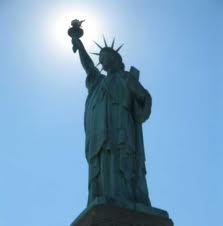Reviewing John Nichols’ Uprising: How Wisconsin Renewed the Politics of Protest, from Madison to Wall Street
What is it that is swelling the ranks of the dissatisfied? Is it a growing conviction in state after state, that we are fast being dominated by forces that thwart the will of the people and menace representative government?
Robert M. LaFollette, July 4, 1897, Mineral Point, Wis.
With that quote, John Nichols begins the first chapter of his unapologetically biased book Uprising: How Wisconsin Renewed the Politics of Protest, from Madison to Wall Street (2012). Nichols, The Nation’s Washington correspondent and an associate editor of Madison’s Capital Times newspaper, recounts the protests in Madison and around the state in early 2011 and analyzes their importance in renewing a spirit of protest that spread from Madison to, ultimately, Manhattan.
Just as Nichols is not an unbiased author, I am not an unbiased reader. What Nichols writes about brings back vivid memories of weekends around the capitol square, in sun as well as in snow and cold, as part of the massive, diverse, palpably energetic crowds that marched around the square in February and March 2011. Uprising is not a chronological account of the protests; rather, Nichols organizes thematically, beginning with the beginning: the cold mid-February day, one day after Governor Scott Walker announced his 144-page budget repair bill that contained provisions that went far beyond repairing the budget to stripping collective bargaining rights of public employees. On that day, Nichols says, fifty members of UW Madison’s Teaching Assistants’ Association (TAA) gathered in front of UW Madison’s Memorial Union and protested (4). Two days later, Nichols tells us, more than 1,000 TAA members marched to the capitol. They were joined each day thereafter by hundreds and then thousands of others from all walks of life – union and non-union members, public and private employees alike – and they continued marching.
How and why what fifty or so students started became an incredible historical event is chronicled in Nichols’ subsequent chapters.

![IMG_7297[1]](http://law.marquette.edu/facultyblog/wp-content/uploads/2012/08/IMG_729716-300x200.jpg)
